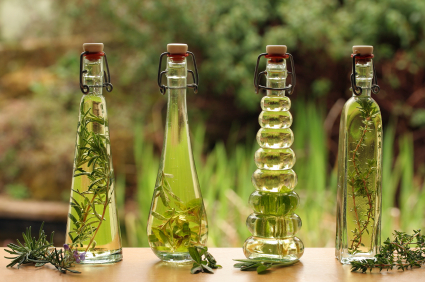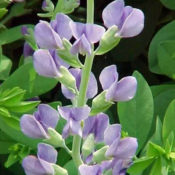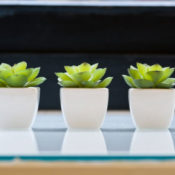This time of year, the garden is bursting with pungent herbs: basil, thyme, rosemary, sage, and savory. Take advantage of the abundance to make flavorful vinegar or oil herbal infusions that can add zest to salads, spreads, sauces, and marinades.
Also, you can store herbs to preserve their flavor by chopping or pureeing them in oil and freezing them. Use 2 cups firmly packed leaves to 1/2 cup vegetable or olive oil. Process in a blender or food processor, then place in a lidded freezer container and seal. Break off pieces to use in cooking. To prevent botulism, keep frozen until use. Never store in the refrigerator.
Basil, borage, calendula, cilantro, dill, nasturtium, rosemary, sage, savory, and thyme are good sources for herbal vinegar infusions.
Use a good quality vinegar that has at least 5 percent acidity. Use white wine, red wine, rice vinegar, or apple cider vinegar. Do not use distilled vinegars.
How to Make:
- Rinse fresh herbs or edible flowers and dry thoroughly.
- Lightly bruise the herbs and stuff into sterilized and thoroughly dried jars or bottles.
- Fill about 1/3 with herbs.
- Bring the vinegar to boiling and pour over the herbs, filling to within 1/2 inch of the top.
- Allow to cool and seal bottles.
- Let steep in the refrigerator for one to two weeks.
- Strain out the herbs and rebottle the flavored vinegar to increase the shelf life of the infusion.
Vinegar should be kept refrigerated and consumed within four to eight weeks.
For an attractive look, you may also place fresh herbs in the finished bottles before sealing. Be sure to remove the fresh herbs, however, when they are no longer covered by the vinegar.
Some Good Combinations:
- Parsley, sage, rosemary, and thyme (an easy one to remember)
- Basil, garlic, dried red peppers
- Dill, garlic, dried red peppers
Oil Infusions:
For oil infusions, use light oils, such as nut, seed, and vegetable oils. The best herbs for oil infusions include chives, cilantro, basil, bay leaf, dill, marjoram, mint, oregano, rosemary, sage, tarragon, and thyme. You don’t need a lot of herbs, just a few sprigs. Be sure herbs are clean and dry. Bruise them slightly with a mortar and pestle. Don’t crush.
- Heat oil on low until just warm. Place prepared herbs in wide-mouth canning jar and pour warm oil over them, completely covering herbs. Seal jar airtight.
- Place in refrigerator for three to four days before use.
- Strain oil through cheesecloth and pour into sterilized, dry bottles. Refrigerate to extend shelf life, but use within four weeks.
Important Information:
Oil infused with fresh herbs, garlic, or dried tomatoes can introduce botulism, which is not detectable by tasting. Be sure to clean jars and bottles with household bleach, rinse thoroughly, and dry them before use. Always keep the oil infusions refrigerated and keep track of the shelf life. Date each bottle to make sure you know how long it has been stored.
Become a Saturday Evening Post member and enjoy unlimited access. Subscribe now




Comments
Ending this article with a reference to “botulism,” approaches poor literary judgement.
Despite the author’s claim to the contrary, it certainly leaves a bad taste.